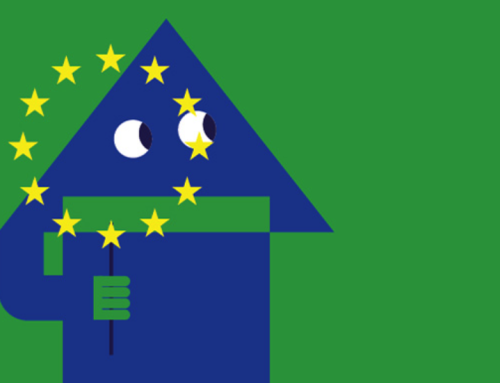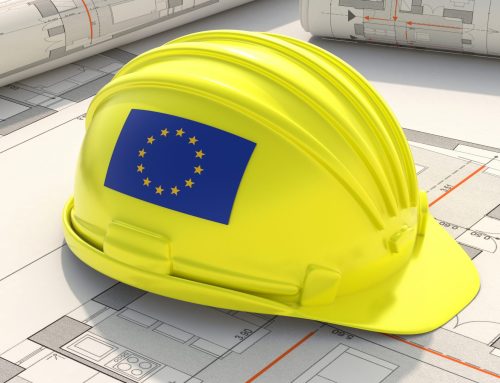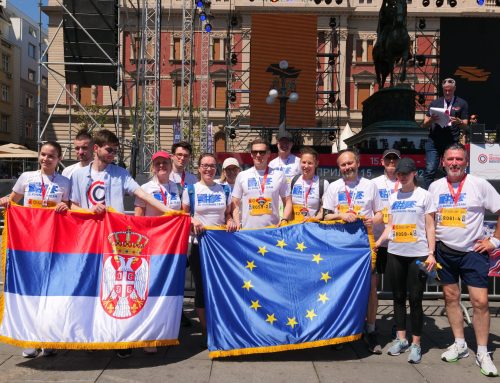What is needed is a serious engagement by both sides to find a negotiated solution out of the current political crisis. It is the only way to avoid vicious cycles of mutual recriminations. Opposition and protesters must dissociate themselves from radical elements – evacuating the occupied Ministry of Justice on 27 January and Ministry of Agriculture on 29 January is but one example of a responsible attitude on their side.
Štefan Füle: European Commissioner for Enlargement and Neighbourhood Policy
European Parliament, Plenary Session
5 February 2014
Let me start by thanking the Parliament for organizing today’s important debate. It shows that the thoughts of all of us here are with the people of Ukraine in these difficult times. And not only our thoughts: we are working hard and are taking concrete actions to de-escalate the situation and to support the Ukrainian citizen’s enjoyment of their freedoms of speech, peaceful assembly, and the freedom of media.
The HR/VP is in Kiev today. She has met the Ukrainian President and opposition. She has also met and will be meeting other stakeholders, in efforts in support of a political solution to the political crisis and support Ukraine on its way forward.
When I last addressed the Plenary on Ukraine in December, the situation was still largely peaceful, even though first attempts of crackdown on pro-European protests had been made. Since then, we have witnessed a serious downward spiral and, lately, unacceptable acts of violence and reports of casualties, torture and disappearances.
I have recently been in Kyiv, just like some of you. With the dramatic events of the last weeks, it has become acutely clear that what is at stake now is not only the respect of the most basic fundamental rights, but also the future of Ukraine.
HRVP Ashton’s and my visits helped to facilitate dialogue and avoid worst case scenarios, including a possible state of emergency. Your presence in Kyiv last week reinforced these messages. We need to keep close coordination of our messages and actions to help in easing of the situation on the ground.
We have coordinated with the Council of Europe and with the OSCE, whose legal expertise has been instrumental in revoking the restrictive legislation which was adopted on 16 January. Unfortunately, with the controversial amnesty law voted on 29 January and the continued impunity for killings, kidnappings, tortures of peaceful protesters and targeted actions against journalists, serious distrust remains between the sides.
What is needed is a serious engagement by both sides to find a negotiated solution out of the current political crisis. It is the only way to avoid vicious cycles of mutual recriminations. Opposition and protesters must dissociate themselves from radical elements – evacuating the occupied Ministry of Justice on 27 January and Ministry of Agriculture on 29 January is but one example of a responsible attitude on their side.
The authorities are responsible for respecting and protecting the freedoms of speech, assembly and media. So far, too little has been done to this end: peaceful protesters continue to be detained, often injured, and sometimes straight out of hospitals. Kidnappings and tortures by unknown perpetrators continue unpunished.
The work of the Investigation Advisory Panel, as proposed by the Council of Europe, has to start immediately as a step towards addressing the current atmosphere of impunity.
De-escalation and stabilisation of the situation is now the main priority. Looking ahead, the focus will be on ensuring lasting stability in the country. A new Government, regardless of its composition, will need to enjoy sufficient trust by all sides. Discussions on the constitution are of particular importance and time is of the essence in that respect. We are ready to support the process with expertise and advice. Conditions for free and fair presidential elections of 2015 will need to be put in place, including in particular with regard to the composition of the Central Electoral Commission and the transposition of the amendments to the law on parliamentary elections into the laws on presidential and local elections.
The European Union stands ready to assist all sides in advancing such a political track. In case of a positive scenario, we will be ready to extend our assistance, based on a genuine commitment to political and economic reforms, in cooperation with the IMF and other international actors.
These steps are necessary in order for the Ukrainian government to ensure the country’s sovereignty, stability, modernisation and economic prosperity for the years to come. They are also crucial if Ukraine wishes to keep the doors open for its political association and economic integration with the European Union.
Cathy Ashton and I are working as a team on Ukraine, she is there today trying to stop the crisis from escalating and I will be returning there next week again.



